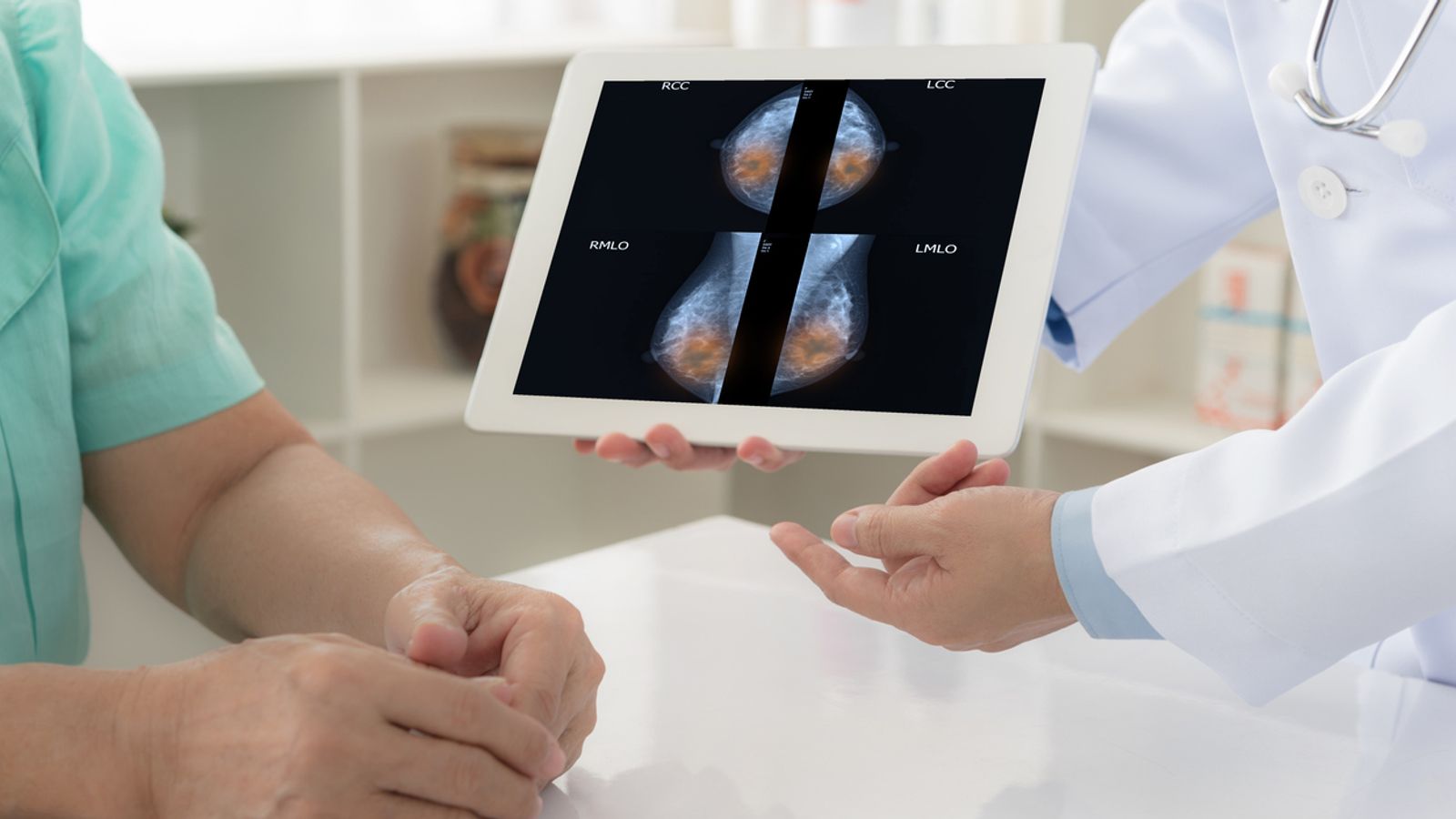New drug offers lifeline to 1,600 women with rare aggressive form of breast cancer
Pembrolizumab can now be used to treat triple negative breast cancer - a form of the disease that accounts for a quarter of breast cancer deaths.

A new drug could benefit hundreds of women suffering from one of the most aggressive forms of breast cancer.
Officials have given the NHS the green light to use pembrolizumab to treat 1,600 patients in England suffering from triple negative breast cancer.
Typically, the risk of triple negative breast cancer returning and spreading to other parts of the body in the first few years after treatment is higher, according to the charity Breast Cancer Now.
But scientists say that for those taking the new drug - alongside chemotherapy before surgery - the likelihood that the cancer will disappear, and the time before cancer returns, increases.
Breast Cancer Now, which promotes research and carries out support, hailed the new treatment, saying that women with this type of breast cancer previously faced the "frightening reality of limited treatment options".
While triple negative breast cancer may be less common, accounting for around 15% of all cases, it is a more aggressive form of the disease and is responsible for a quarter of all breast cancer deaths.
The rare condition predominantly affects patients under 40, black women and those with a specific mutation of the BRCA1 gene, according to Breast Cancer Now.
Baroness Delyth Morgan, chief executive of Breast Cancer Now, said: "This new treatment can potentially lead to any detectable cancer disappearing by the time of surgery, meaning patients will then possibly face less invasive, breast-conserving surgery.
"Furthermore, by significantly reducing the likelihood of breast cancer recurring or spreading to other parts of the body where it becomes incurable secondary breast cancer, this treatment brings precious hope of more lives potentially being saved from this devastating disease."
Helen Knight, interim director of medicines evaluation at the National Institute for Health and Care Excellence (NICE), said: "Today's draft guidance means that we have now recommended three new treatments for routine use in the NHS since June, helping to address this unmet need and giving hope of a longer and a better quality of life to thousands of people."
NHS director of specialised commissioning John Stewart said: "This latest deal for a cutting-edge breast cancer treatment showcases the power of the NHS to agree deals for the latest medicines and treatments at affordable prices for taxpayers."







